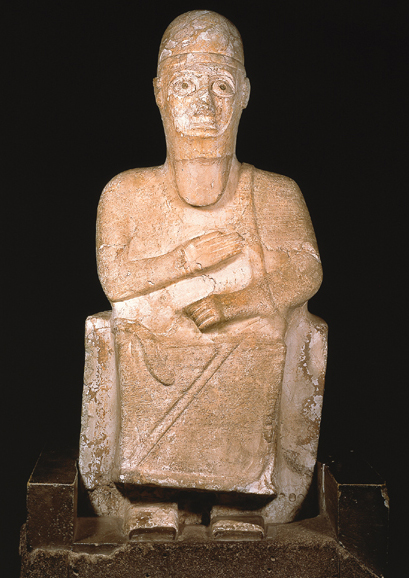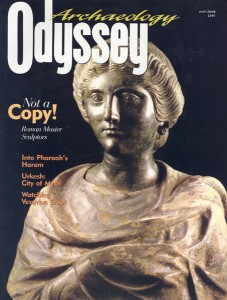The Trials of Idrimi: A Hurrian Tale
Sidebar to: When a Mittani Princess Joined Pharaoh’s Harem

“I am Idrimi, the son of Ilimilimma, the servant of … Ishtar, the Lady of Alalakh.” So begins the Hurrian inscription on the statue above, found in 1939 at Tell Atchana, ancient Alalakh, in Syria. The inscription covers the front of the figure, with a short postscript appearing on Idrimi’s beard and whiskers. In the following passage, Idrimi tells of his family’s fall from grace, his exile in Canaan, and his reinstatement as king of Alalakh by the early 15th-century B.C.E. Mittani king Parrattarna:
“An evil deed happened in Halab [present-day Aleppo], the seat of my family, and we fled to the people of Emar, brothers of my mother, and we lived (then) in Emar. My brothers, who were older than I, stayed with me but none of them had the plans I had. I (said to) myself: “Whoever owns the seat of his family is a … (while) who does not is but a slave in the eyes of the people of Emar!”
“(So) I took with me my horse, my chariot, and my groom, went away and crossed over the desert country and even entered into the region of the Sutian warriors. I stayed with them (once) overnight in my … chariot, but the next day I moved on and went to the land of Canaan. I stayed in Ammia in the land of Caanan; in Ammia lived (also) natives of Halab, of the country Mukishkhi, of the country of Ni’ and also warriors from the country Ama’e. They discovered that I was the son of their overlord and gathered around me.
Already a library member? Log in here.
Institution user? Log in with your IP address.

